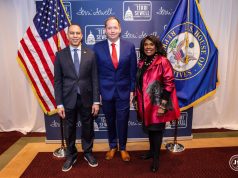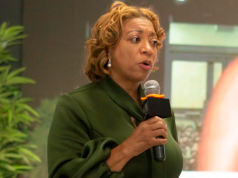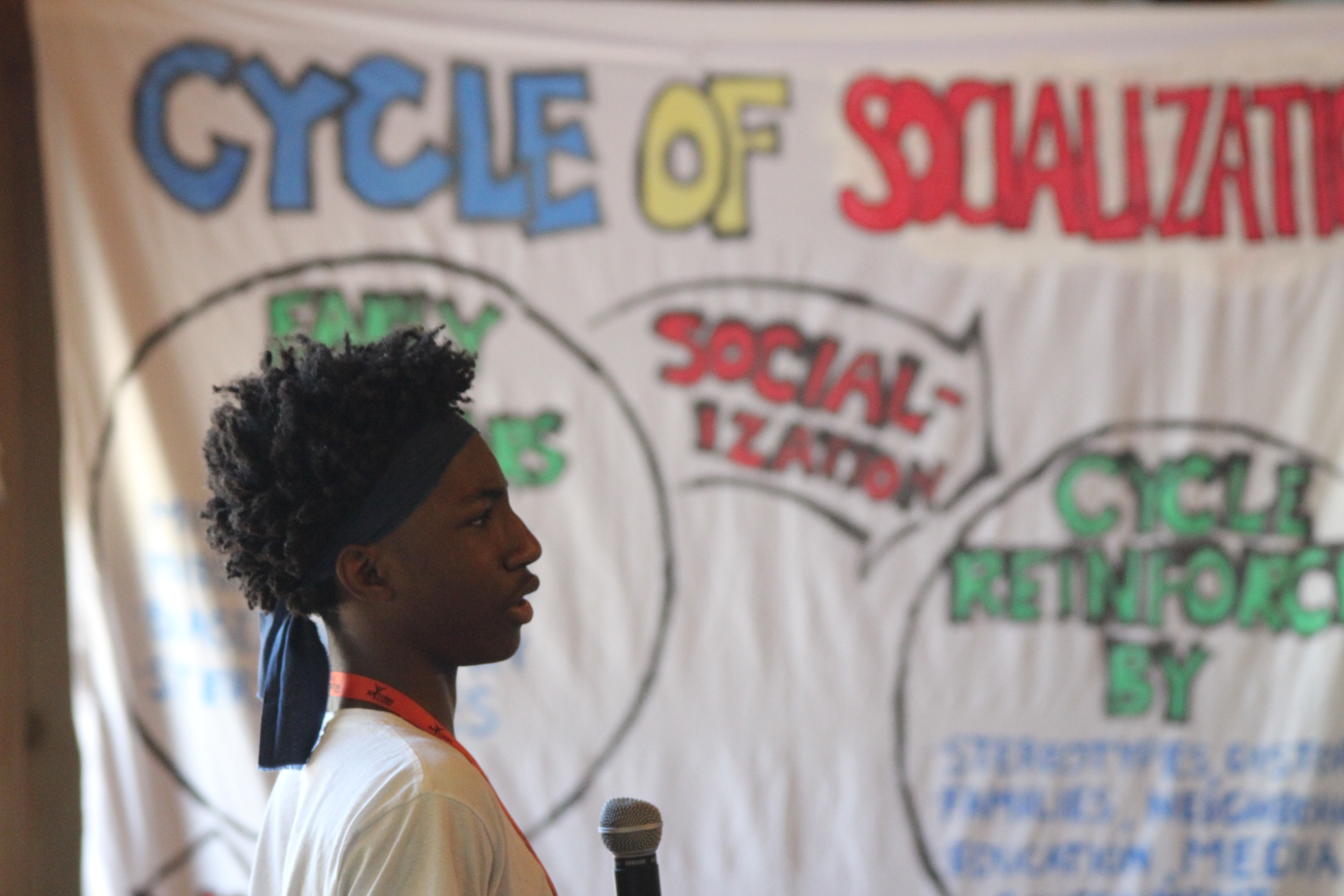
By Ebone’ Parks
The Birmingham Times
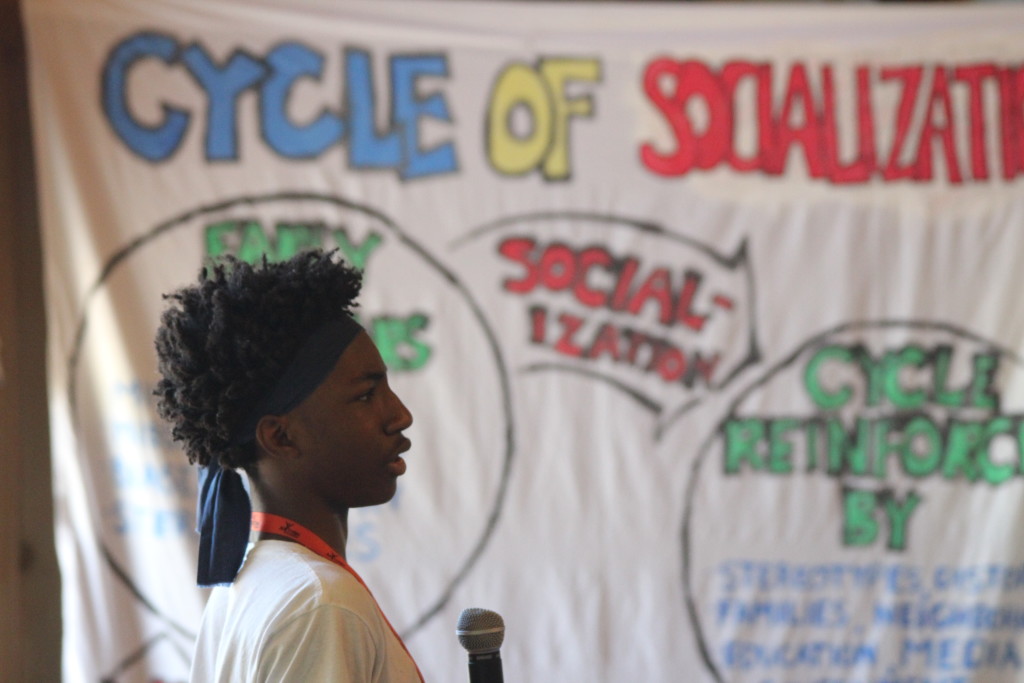
“Life is either a daring adventure or nothing.” Helen Keller
This quote, along with dozens of others, fills up the posters on the cabin walls in a meeting room. Anytown’s second day of social justice leadership camp is about to begin. The week-long camp takes place at Camp Hargis in Chelsea and is designed to help high school students deal with social issues in a cultural sensitive society.
As the morning meeting begins, the room is filled with eager students, mingling and interacting with their peers. WE WILL, WE WILL, ROCK YOU fills up the room as a group of students chant the popular song to awaken everyone.
“The songs get us pumped for the day, we really get hype about the songs,” said 17 year-old Kenya Sermons, a student from Jackson Olin High School. The students are excited as they begin the day, singing and dancing along to the songs from their booklet.
When you walk into the Anytown meeting room, on every poster or painted blanket, you are reminded of motivational quotes, rules and social issues such as the cycles of liberation and socialization.
Lessons at Anytown have been taught each summer since 1989. It was started by the National Conference for Community and Justice and is now a product of partnership with the YWCA Central Alabama.
There are 72 students from approximately 32 high schools in the Birmingham area who serve as delegates at this year’s camp. They spend a full week living at the camp, meeting new people and learning about social issues, ways to solve and recognize those issues in order to better their communities. Students who attend Anytown only have the opportunity to attend once so that other students can have the chance to be a delegate.
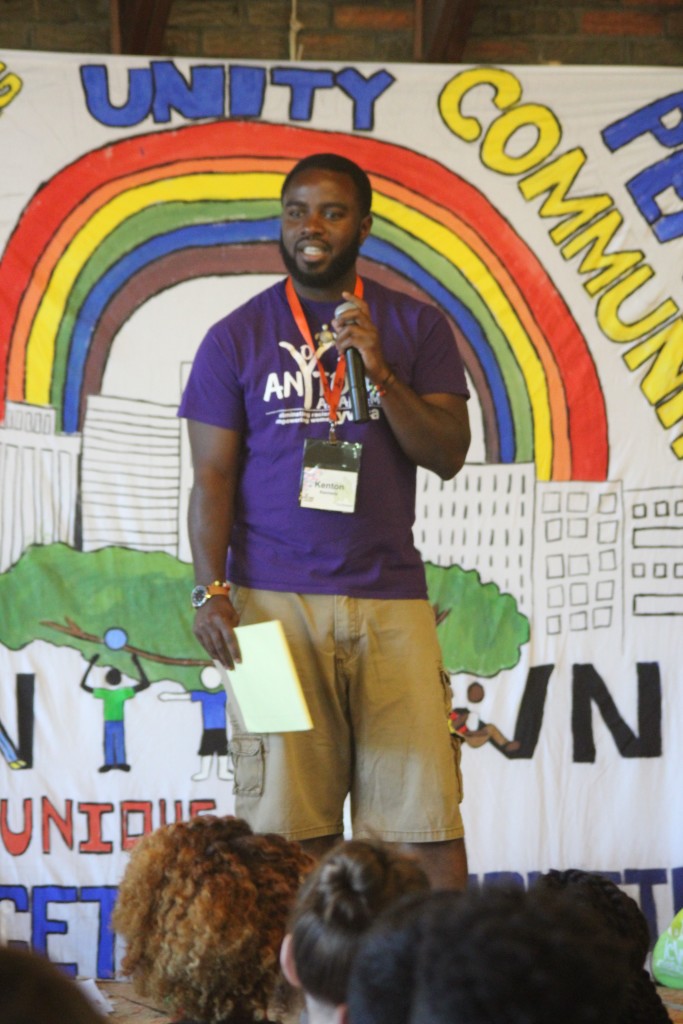
Cedric Sparks Jr., 14, a student from Ramsay High School talked about his experience of being around people from different cultures. “Because of how some kids are raised, they’re kind of closed minded, when it comes to other people,” he said. “But when you come here, you’re actually living with other people so you kind of have to be open minded.”
Rebecca Harkless, Co-Director and YWCA coordinator, talked about the unity and lifetime bonds formed at Anytown.
“Anytown is especially important these days because there’s so much going on, there’s a lot of things in the media that can create divides and this is an opportunity for students from all over the Birmingham area to come together and really get to know each other,” said Harkless, who added that the students “really become empowered and they create change.”
‘Privilege Walk’
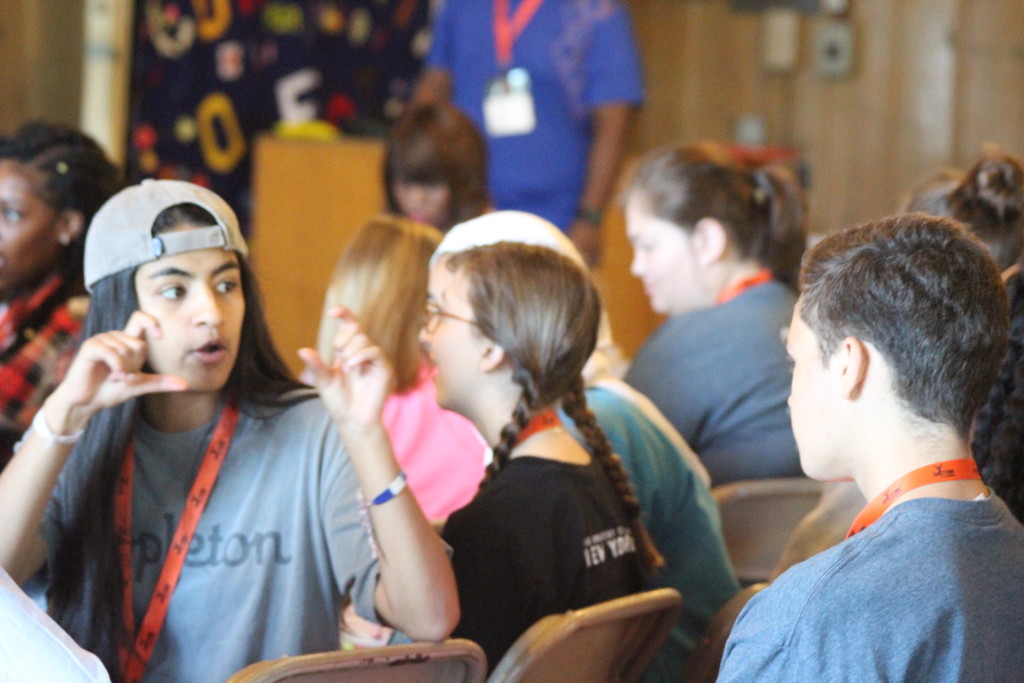
Once the session begins the energetic and enthusiastic students and staff are now quiet. They walk to a nearby field to begin their “Privilege Walk” — an exercise to learn how privilege has an effect on different individuals.
As they all hold hands in a horizontal line, statements are read:
— If your parents are professionals, doctors lawyers, etc., take one step forward.
— If you were raised in an area where there was prostitution, drug activity or high crime, take one step back.
Students and staff members slowly drift away from one another, some so far they are no longer able to hold hands. The breakdown of the groups allows for the individuals to talk about their own personal issues with others who have similar backgrounds.
“Being privileged doesn’t define who you are, you can come out of it. Just because you are a certain gender or race, you can still have the same privileges as everyone else,” says Kamryn Thigpen.
Anytown is the definition of a melting pot, filled with individuals with diverse backgrounds and ethnicities.
Camp counselor, Wesam Shash proudly wears her white hijab as she speaks with the students about how “perfect” she has to be as a Muslim and Arabic woman in America.
“It wasn’t surprising, but it was still an eye opener,” Shash said. “We need [students] to become integrated into the society with new eyes, build better communities.”
As students and staff gathered back together in their meeting room, they all realized how easily it can be to judge someone.
“Exercises like the Privilege Walk help [students] understand the unique positions that everyone has in life,” said Sam Wainwright, a counselor. “I want them to understand that society may have placed us a certain way, and institutions have been set up to discriminate (against) certain groups, but through our work and through our understanding of other people, we can move to a better tomorrow.”



